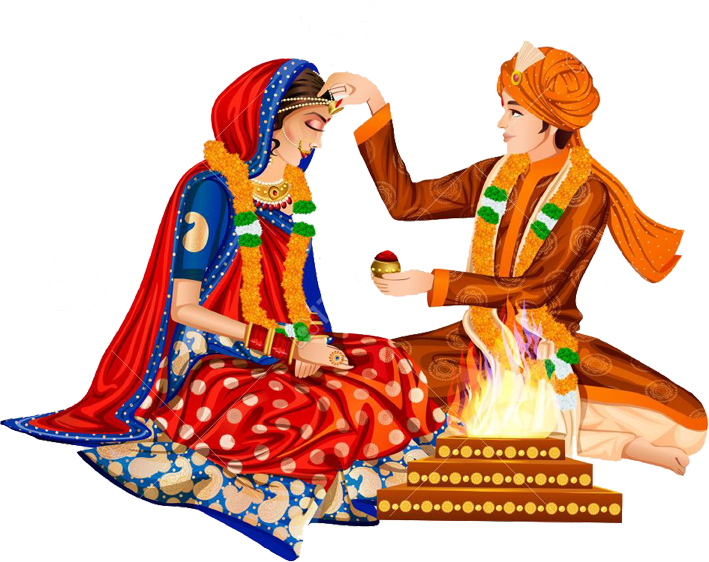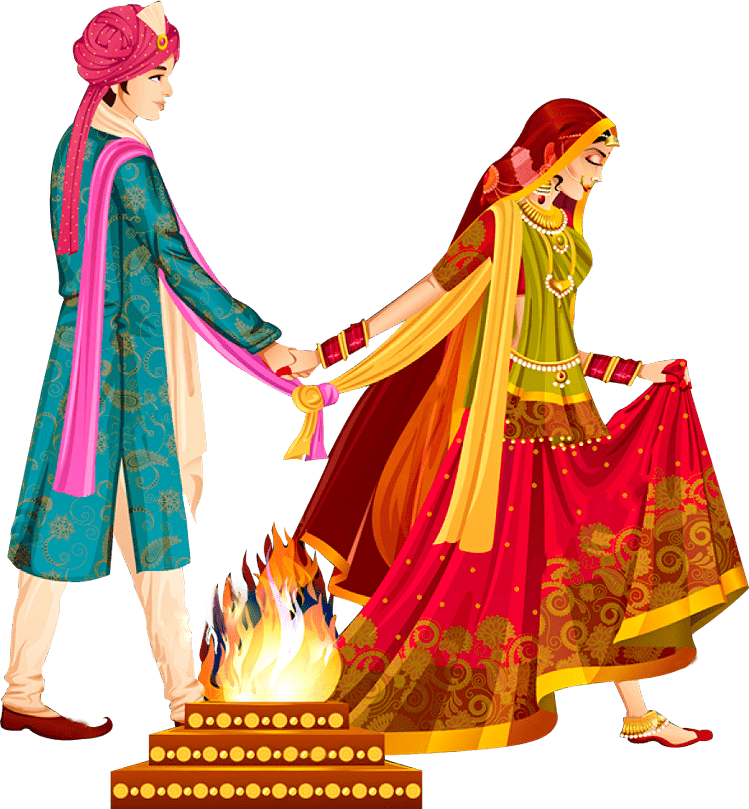Marriage
Marriage is a practice as old as human civilization, which has brought about profound changes throughout human history. Which reflects the evolution of social norms, cultural beliefs and personal aspirations. This permanent union between two individuals holds innumerable meanings. From a legal contract to a sacred bond, it is a source of companionship and lays the foundation of a family and social structure.

1. Historical Evolution of Marriage:
Marriage has a long and varied history, dating back to ancient times. In early human societies, marriage was a practical arrangement, serving not only romantic or emotional purposes but also economic, political, and social purposes. For example, in agricultural societies marriage was necessary to form alliances, consolidate land, and ensure continuity of lineage and inheritance.
Various marital practices have evolved in changing social, economic and cultural contexts. In ancient civilizations such as Mesopotamia, Egypt, Greece, and Rome, marriage was regulated by religious and legal codes. Marriage customs and rituals varied widely across cultures. For example, polygamy was common in many ancient societies, allowing men to have multiple wives for political alliances and other reasons.
With the rise of organized religions such as Judaism, Christianity, Islam, Hinduism, and Buddhism, marriage gained spiritual importance and became subject to religious principles and moral codes. These religions sanctified marital relations and introduced various rituals, ceremonies and rites to regulate sexual conduct, family life and gender roles.
2. Cultural Variations in Marriage:
Marriage customs vary greatly across cultures, reflecting diverse beliefs, values, and traditions. In some cultures marriages are arranged by members of families. In which marriages are arranged by family members without personal consent, while in others, the individual selects his partner based on personal preference and mutual attraction.
For example, arranged marriages are common in traditional Indian culture, with families playing a central role in selecting spouses based on factors such as caste, social status, and compatibility. In contrast, love marriages are more prevalent in Western societies, where individuals freely choose their partners based on romantic attraction and compatibility.
Additionally, marriage customs vary widely across cultures. Which includes many types of ceremonies, symbols and traditions. Hindu wedding ceremonies involve many customs and ceremonies, marital rituals, cultural values, religious beliefs and social norms.
3. Contemporary Significance of Marriage:
Despite the changing nature of society in the modern era, marriage holds an important social, legal and personal significance. Traditional notions of marriage as a lifelong union between one man and one woman persist in many societies today. In modern society, new forms of marriage such as same-sex marriage, civil unions and cohabitation have gained acceptance.
Marriage serves various functions in contemporary society, including providing legal recognition and protection for couples, establishing rights and responsibilities related to property, inheritance and child custody, and promoting emotional intimacy, cooperation and support between partners. Additionally, marriage serves as the foundation for forming a family, raising children, and transmitting cultural values and traditions across generations.

4. Factors Shaping Marital Relations:
Marital relationships are influenced by a myriad of factors including personal characteristics, family dynamics, cultural norms, socioeconomic status, and external stressors. Communication, trust, mutual respect, shared values are essential components of healthy marital relationships. While issues like conflict, infidelity, financial stress and lack of intimacy can create tension in a marriage and lead to dissolution.
Gender roles and expectations also play an important role in shaping marital dynamics. Traditional gender norms prescribe different roles and responsibilities for men and women within marriage. However, changing social attitudes towards gender equality and women’s rights have changed marital relations in many societies.
5. Challenges and Controversies:
Despite its importance, marriage is not without challenges and controversies. Issues such as divorce, domestic violence, infidelity and marital dissatisfaction are prevalent in many societies. This can have serious consequences for individuals, families and communities.
Additionally, external factors such as economic instability, social inequality, and cultural change can impact marital relationships, affecting individuals’ ability to maintain a healthy and fulfilling marriage. The rise of individualism, secularism and globalization has given rise to diverse perspectives on marriage. Some individuals have chosen to abandon marriage altogether in favor of alternative relationship structures or lifestyles.


